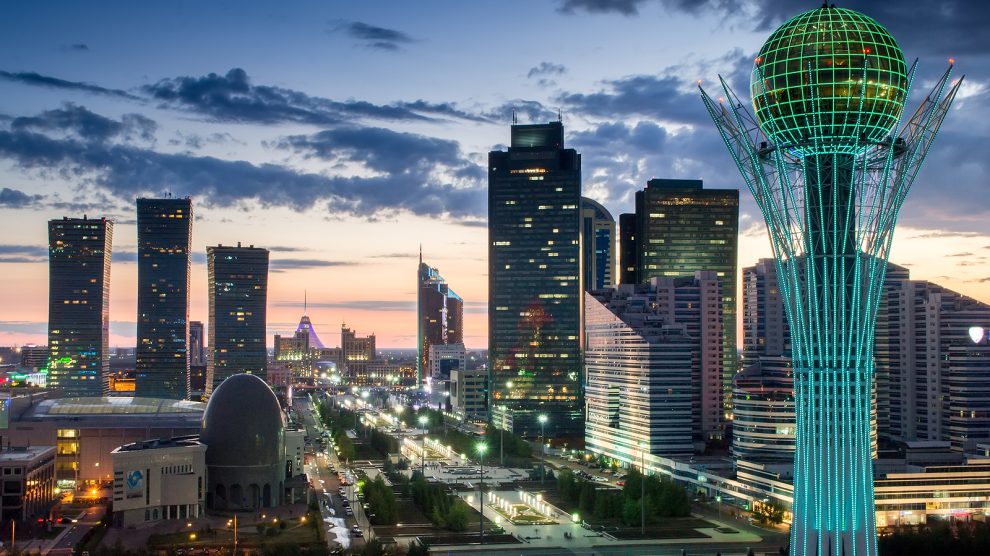The BRICS summit in Kazan is missing one important potential member: Kazakhstan. For Vladimir Putin, it’s a geopolitical setback that Russia’s historical satellite state remains absent as a member, especially in a city whose name echoes that of its Kazakh neighbour.
To the great surprise of most Eurasia and Central Asia observers, Kazakhstan’s President Kassym-Jomart Tokayev has decided that Astana, for the time being, will not join the BRICS bloc.
Given Kazakhstan’s historically close relationship with Russia, as well as its integration into various Russian-dominated security and economic institutions such as the Collective Security Treaty Organisation (CSTO) and the Eurasian Economic Union (EAEU), it seemed only a matter of time before Astana would become part of the new bloc.
- Economy in focus: Kazakhstan
- Education key to boosting growth in emerging Europe and Central Asia
- For UK firms, Uzbekistan’s economic opening offers a wealth of opportunities
The Kremlin was likely displeased with the independent, sovereign choice of its former satellite state and was quick to—not so subtly—express its dissatisfaction with the decision.
Just days after the announcement, Russia decided to ban the import of several Kazakh fruit and vegetable products, citing. “lack of action from the competent authorities in Kazakhstanto ensure phytosanitary safety in Russia”. For those who can read between the lines, this is merely a flimsy excuse to impose punitive measures against its historically compliant southern neighbour.
And the Kremlin has good reason to be frustrated over the actions of Astana. The symbolic significance of such a decision is extremely important, given the larger geopolitical tug-of-war over the future of the international system, currently being waged between Russia and China on one side, and the US and Europe on the other.
Modest victory
Given Central Asia’s increasingly important geostrategic and geo-economic significance—as the core of the Middle Corridor and possessing various strategically important resources—Tokayev’s decision is a modest victory for the latter.
The symbolic impact is also crucial. By keeping BRICS at arm’s length, Astana shows that Kazakhstan remains serious about pursuing an independent—so-called multi-vector—foreign policy, free from diktats from its larger neighbours.
In the post-Soviet world, Astana’s overarching strategic goal has been to avoid taking part in larger geopolitical blocs, which in principle means subordinating its foreign policy to greater powers. By engaging with all actors in the international system, the interests of the Kazakh nation are best served.
BRICS is increasingly regarded as a Russian-Chinese geopolitical project aimed at undermining the Western-designed liberal, rules-based international system and transforming it into one that better serves their interests.
Although this is an oversimplification of BRICS’s function, Astana has nevertheless made an important symbolic choice. By staying outside the new bloc system now being established in the international arena, Kazakhstan’s geopolitical future remains uncertain.
But Astana has never been able to afford the luxury of completely ignoring the Kremlin’s geopolitical interests in shaping its foreign policy. As Russia’s third most important historical buffer state, after Belarus and Ukraine, Kazakhstan is in a delicate situation that dictates its political room for maneuver in any geopolitical context.
Given the uncertain outcome of the Russo-Ukrainian war—and thus Ukraine’s geopolitical fate—Astana will likely wait for the war’s resolution before making geopolitical choices that risk closing the door to genuine sovereignty and foreign policy independence.
Treading carefully
For the time being, it is probably wise for Astana to tread carefully so as not to alienate its Western partners before Kazakhstan eventually enters a new international political institution where Russia plays an important role.
Russia’s capacity to inflict significant harm on the country is currently limited due to the military quagmire in Ukraine, but this may be short-lived.
From Astana’s perspective, a Russian defeat in Ukraine—full or partial—seems to be in its national interest. A Russian victory, on the other hand, could result in a more self-confident and revanchist Moscow that could quickly create geopolitical problems at home and put an end to the country’s multi-vector foreign policy once and for all.
A Russian victory could lead to a more self-assured Kremlin setting its sights on Kazakhstan’s northern provinces—where ethnic Russians are in the majority—to continue Putin’s apparent project of partially reversing the “greatest geopolitical catastrophe of the century”, namely the collapse of the Soviet Union.
In such a scenario, unless Astana decides to enter into a new servile, vassal-like relationship with its large neighbour to the north—which in practice would mean relinquishing the independent foreign policy that Kazakhstan has pursued since the collapse of the Soviet Union—Putin’s now battle-hardened military machinery could quickly find new missions to undertake.
Little stands between the capital Astana and a potential massive force of Russian tanks; the open Kazakh steppes offer no protection, and the long, demanding supply lines would only complicate any potential military resistance further.
Unlike many news and information platforms, Emerging Europe is free to read, and always will be. There is no paywall here. We are independent, not affiliated with nor representing any political party or business organisation. We want the very best for emerging Europe, nothing more, nothing less. Your support will help us continue to spread the word about this amazing region.
You can contribute here. Thank you.


